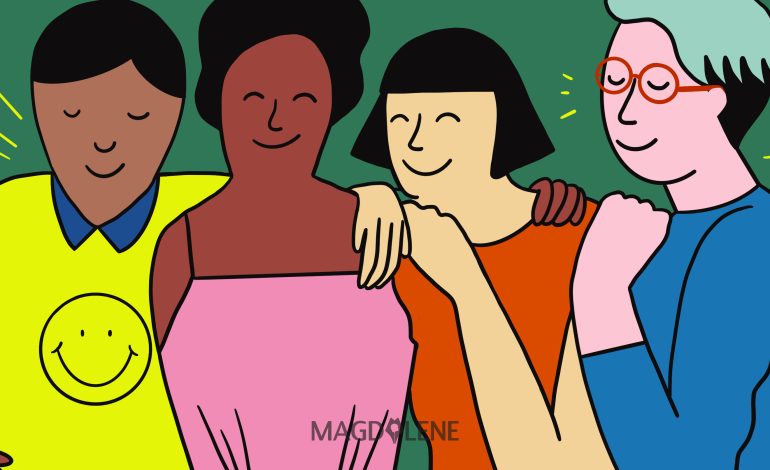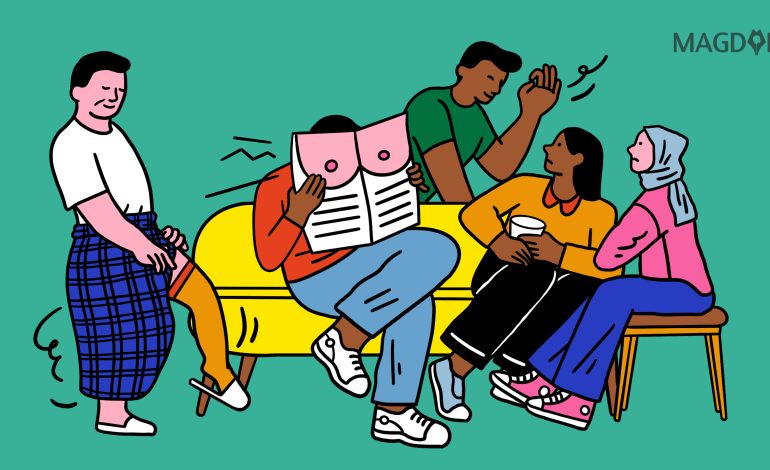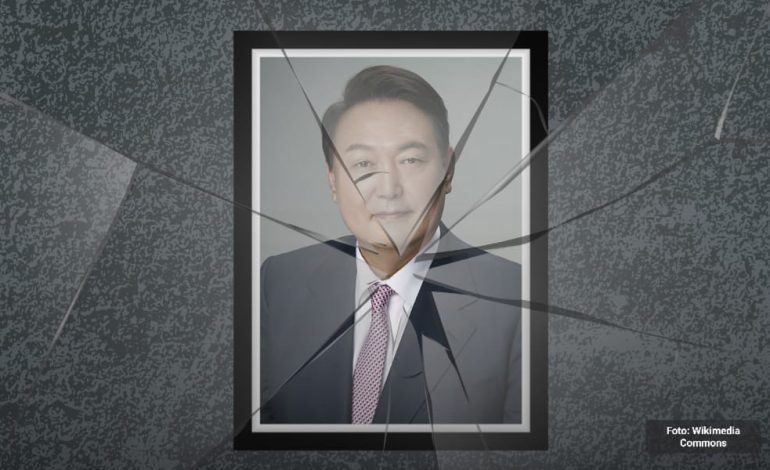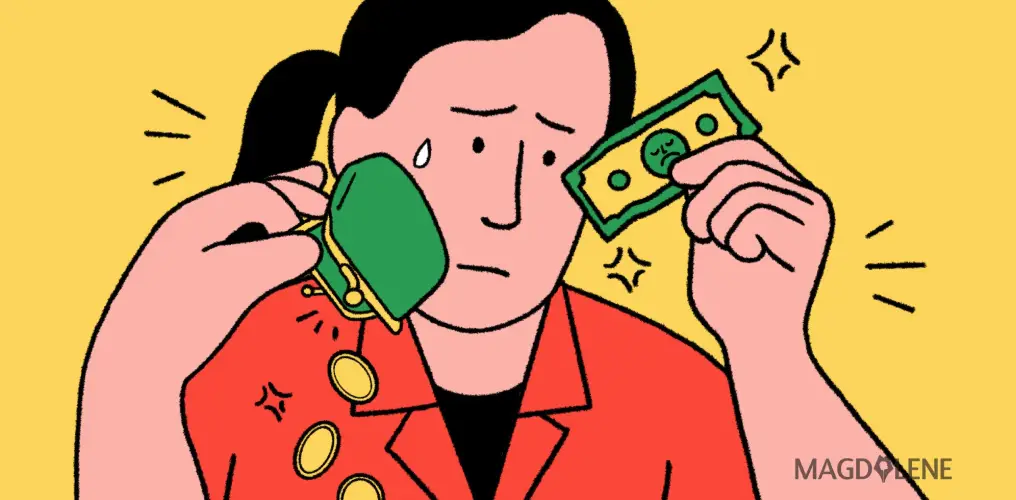Girl, So Confusing: The Messy Realities of Female Friendships

For as long as I can remember, I’ve always been a girl’s girl. I’m the middle child of three daughters, raised by a stay-at-home mother, while our father worked outside the home to provide for our family of five.
To this day, I naturally feel a stronger bond and trust with other women than with our male counterparts. Whether it’s blood relatives, chosen family, or strangers sharing the all-female carriage on a train, I could always count on them to make me feel safe. This was my experience of girlhood. For a long time, I naively thought that every girl had this same sense of security and connection—until that bubble inevitably burst as I grew older.
One of my closest girlfriends, who I had known for years, ditched me to spend time with some boy she had met only a week before. Scheduling a simple hangout with friends began to feel strangely like administrative work. Why was it so hard? And what did it mean when I knew I loved my friends deeply, but on some days, I didn’t particularly like them? These questions weighed on me.
Also read: The Myth That Women Secretly Hate Other Women Has A Long History
Rather than playing the blame game, I began to confront societal structures that shape and complicate my friendships with other women. In theory, making new friends should be easy—there are eight billion people on this planet, after all. But in reality, the process of building genuine friendships is far more complex. The loneliness epidemic continues to grow, with more people reporting fewer close friendships. Yet, as social beings, we still crave connection.
In today’s late-stage capitalist era and hyper-individualistic society, many of us are fed the illusion of self-sufficiency. We’re conditioned to believe we can—and should—sustain ourselves by any means necessary. Yet, the quality of our social connections could determine our survival.
A study published by Oncology Times found that women with early-stage breast cancer who were part of a strong social support network had better chances of survival, with noticeable improvements in their physical health. So, before deciding to completely cut ties with a friend you’re in conflict with, it might be worth considering whether working things out could benefit you both.
There were times when I could resolve friendship conflicts, but there were also moments when I experienced the heartbreak of a dreadful friendship breakup. The pain of throwing away a friendship bracelet, literally or figuratively, is visceral—like a knife to the gut. On one hand, sisterhood offers a safe space to experience intimacy and closeness with other women. This kind of solidarity can feel liberating, especially for cishet women like myself, because it decenters the role of male partnership. It’s like giving the patriarchy the middle finger. On the other hand, like any other relationship, friendship can run its course.
Also read: Forget Rivalry: Why Women Should Help Each Other
The Complex Bonds That Are Worth It
Charli XCX’s song “Girl, So Confusing” from her album BRAT perfectly captures the ambiguity of female friendships. Based by her real-life frenemy relationship with fellow singer Lorde, the tract explores the uncertainty and contradictions that often define these bonds. Charlie confesses that she “doesn’t know” if she even likes her friend, and she sometimes wonders if she “might hate” her. It’s all so unclear, just like the messy realities of navigating friendships.
In an article for The Cut, writer Melissa Dahl explores the brutality of friendship breakups, noting that the “endless ambiguity” between two supposed friends can be psychologically unsettling. Rather than sweeping unresolved feelings under the rug, it might be more productive to discuss those emotions openly and non-avoidantly, including friendship taboos like envy.
Envy can quickly morph into passive-aggressive behavior if left unaddressed, disrupting the balance of the friendship dynamic. Other difficult emotions, like rage, betrayal, and grief, also deserve space for open conversation to avoid being morphed into unkindness. Even if, like Charli XCX, we find ourselves grappling with uncertainty about how we perceive and act in our friendship, these feelings are valid and can be approached with compassion.
Also read: How To Resolve Friendship Tension Like Lorde and Charli XCX
In the remix of “Girl, So Confusing,” Lorde responds to Charli’s concerns by sharing her side of the story and affirming their discomfort and ambiguity. There’s no denying they’ve both felt hurt by the other, but in the end, they still reaffirm their bond, ready to stand by each other.
Despite the heartbreak I’ve experienced from friendship breakups, I still believe in the magic of platonic love and its healing power. Solidarity, when it’s not weaponized to undermine collectivism, can be radical. I used to feel inadequate for being a girl’s girl, but now, I embrace it. I’m grateful for the intimate and sacred moments I’ve shared with other girls. We were girls together, and that made me feel less alone.
Without them, I don’t think I could ever fully be myself. I feel the utmost gratitude for my girls, who I’d ride for, and myself, who persevered and kept trying.
Ghina Furqan writes poetry, personal essays, fiction stories, and journalistic reports. Her work has been featured in Magdalene Indonesia, Buah Zine, Word In Progress ID, and Everyday Muslim Heritage UK. She posts early drafts on Instagram (@ghinaafurqanwrites) and rambles on Medium (@ghinafurqan).
Ilustrasi oleh: Karina Tungari






















